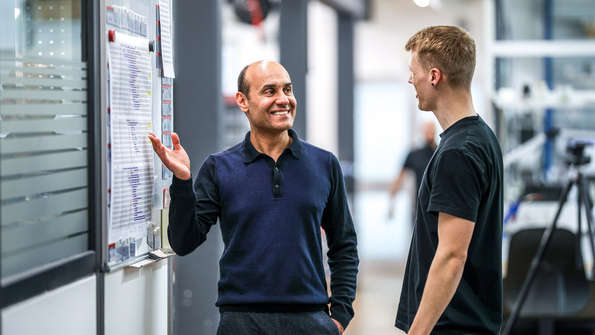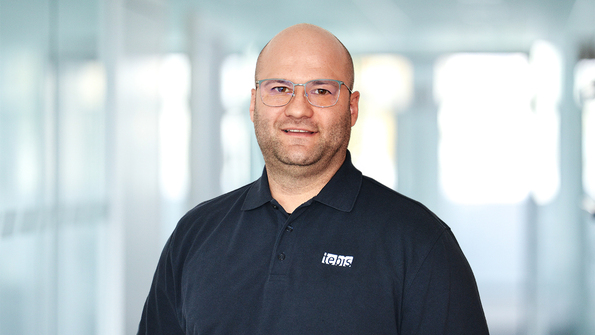Consulting in sheet metal working
Practical consulting for medium-sized manufacturing companies
A crucial factor for maintaining and improving competitive advantages in the dynamic sector of sheet metal processing is continuing digitalization, including optimizing sheet metal working processes and improving production output. This establishes a solid basis for strategic decisions that improve efficiency while also strengthening long-term market position. However, despite the opportunities, many companies are challenged by lacking the necessary internal expertise for improvement.
The solution comes from external consulting: We apply targeted expertise and an objective outside perspective for consulting in management and strategy development to optimize sheet metal working processes and improve production output. Take the next step to improve your sheet metal working and to ensure and grow your long-term competitive advantage on the market.
Why are we experts in sheet metal working?
Before we started our consulting careers at Tebis Consulting, we had already accumulated many years of professional experience in the industry. This enables us not only to communicate theoretical knowledge, but also to provide tried and proven practical strategies from our own experience. We can therefore communicate with all employees as equals and can understand precisely the challenges they face. We supplement this essential ability by offering the following industry-specific solutions for sheet metal working companies:
Our consulting approach
What our customers appreciate about us:

- Our projects give companies a clear edge – we aren't satisfied until the jointly defined goals have been fully achieved.
- We approach employees eye to eye – we achieve this with our high social and practical competence.
- We transfer the implementation of gut decisions to the head – with extensive benchmarking databases and standardized key figures.
- We are involved in a wide range of areas - through voluntary work in industry associations & initiatives or in lectures at universities.
- Our implementation and appearance are competent, simple, clear, appealing and efficient - each consulting process is characterized by clear, focused and friendly communication, yielding fast, effective results.
An expert in the sheet metal working industry
You're just one meeting away from greater efficiency. Let's talk!
Ricardo Vieweg can boast in-depth process expertise based on years of practical experience as an industry manager in die and mold manufacturing and as an application engineer in the international space. He has in-depth process expertise. He focuses on optimal value creation by companies in machining and automation.
His core expertise is in analyzing work processes and identifying process and productivity gaps, in consulting on increasing efficiency and in project management. Based on his extensive practical expertise in machining, clamping technology and CAM programming, he understands the technical relationships and supports corporate customers in optimizing their manufacturing processes.


Future trends in sheet metal working
The sheet metal working industry is faced with many challenges and trends that are significantly affected by advances in technology, changing market conditions and global economic dynamics. These developments necessitate fundamental changes in the methods and strategic orientation of companies in this sector.
Reducing and avoiding scrap
Reducing or avoiding scrap represents a key challenge in sheet metal working. Every defective sheet metal part constitutes a loss in material and energy, unnecessarily driving up both production costs and environmental impact. To counteract this, companies rely on modern monitoring and control systems that provide real-time data recording and the immediate detection of processing errors. Precise measuring instruments and continuous training of operating personnel can minimize production tolerances, ensuring the quality of the sheet metal parts. A comprehensive analysis of the error sources and their systematic elimination is the key to reducing scrap, thereby improving the efficiency of the entire production process.
Production process optimization
Process optimization is critical to improving efficiency and competitiveness. Companies apply lean management methods and continuous improvement processes (CIP) to reduce waste and shorten throughput times. Automation and robotics can be applied to improve the efficiency of high-precision, repetitive tasks. Digital networking of the machines enables more intelligent production planning and control, improving flexibility and responsiveness to customer requirements. Another central factor is the implementation of a flexible production system that can be quickly adapted to changing production orders.
Cooperation with die manufacturing
Close coordination between designers, die makers and manufacturing engineers is critical to the development of dies that meet the requirements of sheet metal working. From the concept phase, to prototype production, to series production, a continuous exchange of information must be ensured to maximize tool life and minimize manufacturing costs. Good communications and common problem-solving approaches ensure higher product quality and shorter development times, which in turn shortens market response time and improves customer satisfaction.
Future strategic orientation
The future strategic orientation in sheet metal working must focus on both technical innovation and market developments. Consistent investment in research and development in new materials and processing methods is just as important as adaption to an ever-increasing demand for customized solutions and short delivery times. Companies must also focus more on integrating environmental management and resource efficiency in their business models to not only achieve economic objectives but also ecological ones. Strategic orientation is thus a dynamic process necessitating continuous monitoring and adaptation to the market.
Addressing these trends together requires a deep understanding of the specific needs in sheet metal working and the ability to develop custom solutions that ensure long-term competitive advantages. Companies that proactively integrate these developments at an early stage will be ideally positioned to successfully master future challenges in the industry.
Seminars for the sheet metal working industry

Not familiar with us yet? Get to know us at our specialist seminars
Our specialized production and management seminars improve your competitiveness and promote your company's long-term success by expanding your professional and interpersonal skills. Based on practice, intended for practice. Our seminars are for:
Managing directors
Senior employees
Manufacturing managers
Production managers (shop floor management)
Are you facing a challenge in your project and need a competent consulting partner? Let's start with a non-binding discussion and work together to find a solution. We will also be pleased to answer any general questions about our approach.








